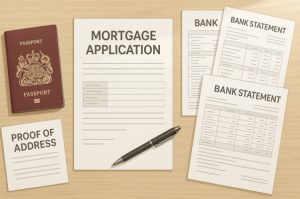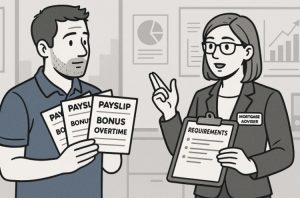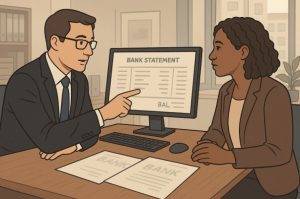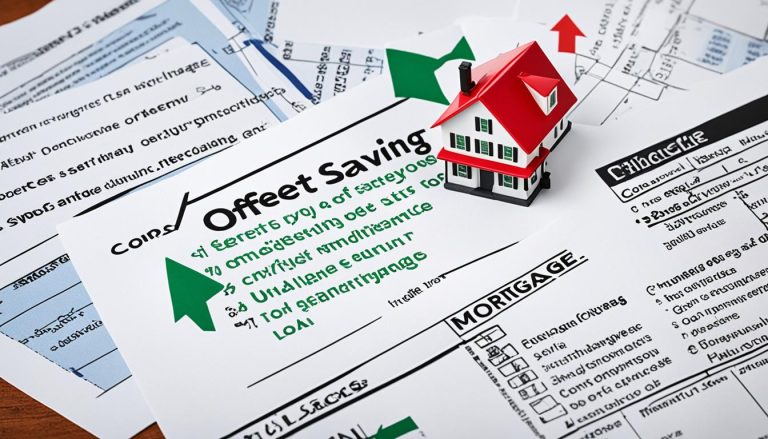Applying for a mortgage in the UK requires providing clear proof of income, and payslips are a key part of that process. But how many payslips do lenders actually require? The answer depends on your employment type, payment frequency, and whether you receive extra income such as bonuses or overtime. Understanding these requirements can help you prepare in advance, speeding up the mortgage process and avoiding delays.
What Documents Do You Need to Provide When Applying for a Mortgage?

When applying for a mortgage, UK lenders require a set of documents to verify the applicant’s identity, financial stability, and affordability.
This process is essential to ensure that the borrower meets the lender’s risk assessment criteria and legal obligations such as anti-money laundering checks.
The main types of documents requested are:
- Proof of identity: such as a valid passport, UK driving licence, or national ID card
- Proof of address: recent utility bills, council tax bills, or official bank statements
- Proof of income: payslips, bank statements, or tax returns depending on employment status
- Evidence of deposit: bank statements or a gifted deposit declaration
Providing these documents in full, with accurate and up-to-date information, can speed up the decision-making process and reduce the risk of delays.
How Many Payslips Do Lenders Usually Require?
The number of payslips needed for a mortgage application depends on the applicant’s employment type and how often they are paid. Most UK lenders require at least one recent payslip for applicants in permanent employment. However, some may request additional payslips if the applicant’s income varies or if they are applying with multiple income sources.
Payslips must be the original document or a digital copy from the employer’s official payroll system. Screenshots of payslips are not accepted by most lenders. They should clearly display:
- The applicant’s full name, matching the mortgage application
- The employer’s name
- The pay date and relevant tax period
- Gross and net pay
- Any regular allowances such as car or location allowance
For applicants paid monthly with a fixed salary, three months’ worth of payslips is typically sufficient for most high street lenders.
How Do Payslip Requirements Change If You Have Extra Income?

When an applicant’s mortgage affordability relies partly on variable income such as bonuses, commission, or overtime, lenders require a longer history of payslips to confirm that this income is consistent and reliable.
The table below shows typical lender requirements based on payment frequency for applicants including variable income in their mortgage application:
| Payment Frequency | Number of Payslips Required |
| Weekly | 8 most recent payslips |
| Fortnightly | 6 most recent payslips |
| Monthly | 3 most recent payslips |
| Quarterly | 3 most recent payslips |
| Half-yearly | 4 most recent payslips |
| Annually | 2 most recent payslips |
In addition to payslips, lenders may also request corresponding bank statements to verify that the income is being paid into the applicant’s account.
What Payslip Information Do Mortgage Lenders Check?
Mortgage lenders use payslips to verify income accuracy and assess whether applicants can afford the loan they are applying for. This is not just a matter of looking at the total salary; lenders scrutinise various details to ensure the information aligns with the mortgage application.
Name and Personal Details
The name on the payslip must match exactly with the name on the mortgage application. If there is a middle name on the application, it should also appear on the payslip. Any address shown on the payslip should match the address declared in the application.
Employer Identification
The employer’s name must be clearly stated. If it is not present on the payslip or does not appear on corresponding bank statements, lenders often request additional proof such as a P60 or an employment contract.
Pay Date and Tax Period
The pay date confirms the applicant’s income frequency. The tax period is also checked to ensure that the payslip covers the correct time frame for assessing earnings.
Gross and Net Pay
- Gross pay includes the total income before deductions, such as basic salary, contractual pay, and allowances.
- Net pay is the amount received after deductions for tax, National Insurance, student loan repayments, and other commitments.
Additional Income and Allowances
Payslips often detail extra earnings like bonuses, overtime, or commissions. Lenders assess whether these are regular or occasional and may require multiple payslips to establish an average.
Deductions and Financial Commitments
Some payslips list deductions such as pension contributions, childcare vouchers, or loan repayments. Lenders review these to understand the applicant’s fixed financial obligations, which affect affordability.
What If You’re on a Fixed-Term Contract?
Fixed-term contract workers face slightly different requirements compared to those in permanent roles. Lenders generally require that the applicant has either been employed for a minimum of 12 months in their current contract or has at least 24 months remaining.
Documentation typically required includes:
- The current signed employment contract in full
- Any extension letters if the contract has been renewed or extended
These documents allow lenders to assess the likelihood of continued employment and income stability, which is crucial for mortgage affordability.
What Payslip Alternatives Do Self-Employed Applicants Need?

Self-employed applicants do not have employer-issued payslips, so lenders require alternative forms of income verification. These documents must show a clear record of earnings over a period of time.
HMRC Tax Calculations
Also known as SA302 forms, these show declared income for the relevant tax years. Most lenders require the latest two years of tax calculations to assess stability and consistency of earnings.
Tax Year Overviews
Accompanying the tax calculations, the tax year overview from HMRC confirms that the figures match official tax records and that any due tax has been paid.
Accountant’s Certificates
If an applicant uses a qualified accountant, lenders may request an accountant’s certificate. This is a form completed by the accountant to confirm income details, typically for the most recent two years.
Commercial Software Reports
If accounts are managed through recognised accounting software such as Xero or QuickBooks, lenders may accept printed profit and loss statements or income summaries as supporting documents.
Contractor-Specific Documentation
For contractors working through a limited company:
- Those trading for one to two years may be assessed under fixed-term contract rules.
- Those trading for more than two years are often treated as self-employed.
In both cases, lenders may request contracts, invoices, or statements showing contract duration and rates.
Do Mortgage Lenders Accept Other Sources of Income as Proof?
In addition to employment income, lenders can consider other verified sources of income when assessing affordability. These include:
- State benefits such as Universal Credit or Disability Living Allowance, supported by bank statements or award letters
- Maintenance payments are evidenced by three months of bank statements showing regular deposits
- Private pensions supported by pension statements or payslips
- State pension evidenced by the latest annual statement from the Pension Service
The key factor is consistency. Lenders are more likely to include income that is regular and predictable in affordability calculations.
What Role Do Bank Statements Play in a Mortgage Application?

Bank statements are an essential part of the mortgage approval process because they give lenders a clear and accurate picture of an applicant’s financial behaviour.
While payslips confirm income, bank statements reveal how that income is managed and whether the applicant’s spending habits align with their declared affordability.
Verifying Income Deposits
Lenders use bank statements to cross-check that the salary or income stated on the application is actually being paid into the applicant’s account. They look for:
- Consistency of payment dates
- Matching amounts to payslip totals
- Employer or payment source details appearing in transaction references
If there is a mismatch between payslip figures and bank statement deposits, lenders may request additional clarification.
Assessing Regular Outgoings
Bank statements also show recurring expenses, which help lenders evaluate affordability. These outgoings may include:
- Loan repayments
- Credit card bills
- Utility and council tax payments
- Rent or other housing costs
- Subscription services and memberships
If declared expenses differ from what appears on the statements, lenders may adjust their affordability calculations.
Detecting Irregular or Risky Transactions
Lenders check for signs of financial instability, such as:
- Frequent overdraft use
- Returned direct debits
- Large cash withdrawals without explanation
- Regular gambling transactions
While occasional irregularities may not impact an application, repeated patterns can raise concerns about the applicant’s ability to manage mortgage repayments.
Meeting Anti-Money Laundering (AML) Regulations
UK mortgage lenders must comply with strict AML regulations. Bank statements help verify the source of funds, particularly for deposits, to ensure they are from legitimate and traceable sources.
Length of Statement History Required
The number of bank statements required varies based on the applicant’s situation:
- Standard employed applicants: usually 1 to 3 months of statements
- Self-employed or variable income earners: may require up to 6 months
- Applicants with overseas accounts: often need a longer statement history, sometimes translated and certified
Requirements for Online Statements
Most lenders accept online statements, but they must include:
- The bank’s official logo
- The applicant’s name and address
- The account number and sort code
- The full URL or web address to confirm authenticity
PDF downloads from the bank’s official online portal are generally preferred.
How Do You Prove the Source of Your Deposit?
Lenders require evidence of where the mortgage deposit has come from to meet anti-money laundering regulations. The number of bank statements required depends on the location of the savings account:
| Location of Account | Bank Statements Required |
| UK or European Economic Area | 1 month |
| Outside UK or EEA | 3 months |
If the deposit is a gift, the lender will request a gifted deposit form and may ask the donor for bank statements showing the transfer, particularly if the funds originate from overseas.
What Extra Documentation Might Be Needed for Non-UK Applicants?
Applicants who are not UK or Irish nationals may need to provide additional documentation, such as:
- Proof of indefinite leave to remain in the UK, or a visa with at least 12 months remaining
- Evidence of three years’ legal UK residency
- Salary paid in sterling into a UK bank account
Certain restrictions may apply, such as a maximum loan-to-value of 85% or ineligibility for specific property types like equity share homes.
How Can You Speed Up Your Mortgage Application With Payslips?

Submitting payslips and supporting documents at the earliest stage of the mortgage process can reduce delays. This is particularly effective when done during the Decision in Principle stage.
Applicants can improve processing times by:
- Ensuring documents are complete and up to date
- Using the correct original digital format for online payslips and statements
- Making sure names and addresses match across all documents
- Providing additional income evidence where relevant
Conclusion
The number of payslips required for a mortgage in the UK depends on employment type, pay frequency, and whether extra income is included.
For most salaried applicants, three recent monthly payslips will be sufficient, but weekly and variable income earners may need to provide more. Understanding your lender’s specific requirements and preparing documents in advance can help secure a smoother, faster mortgage approval process.
Frequently Asked Questions
How many months of payslips do I need for a UK mortgage?
Most lenders request three months of payslips, but weekly paid employees may need to provide eight.
Can I use online payslips for a mortgage application?
Yes, as long as they are in their original format and not screenshots.
Do lenders check bonuses and overtime?
Yes. Additional payslips are required to verify variable income, ensuring it is consistent.
What if I have just started a new job?
Some lenders may accept payslips from your current role if you have passed your probation, but others prefer at least three months’ history.
Do self-employed people need payslips?
No. Self-employed applicants provide HMRC tax calculations, overviews, and possibly accountant’s certificates.
Are bank statements always required for a mortgage?
Not always, but many lenders request one to six months of statements for income and expenditure verification.
Can gifted deposits be used without proof?
No. Lenders require a gifted deposit form and, in some cases, bank statements from the donor.






